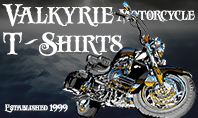http://archives.wingworldmag.com/january2003/magazine/department/thinkingcritically.htmlThe valkyrie manual does not show the pins being lubed.
Below is from the Honda Motorcycle Technician Newsletter otherwise known as “The Wrench.”
"For GL1500s with the 5-pin flange (1990 and later), the letter indicates that the pins do not require lubrication. The second article, a follow-up that appears in the February “Wrench,” states that application of Moly grease to the 5-pin flange may actually accelerate wear, because the steel pins are mated with aluminum collars (as opposed to the steel collars used with the 6-pin flange). Got that? No grease on the pins of GL1500 5-pin flanges.
Late model GL1500 manuals delete text references to lubing the pins, yet the drawing accompanying the text continues to indicate that lube is required. Why the confusion? My guess is that the drawing, taken from the 1990 service manual, was mistakenly retained unaltered through the 2000 edition."
"there’s also some extremely important information in two sentences within the lube interval recommendations for the splines that mechanics might not know if they didn’t have access to, or had not read carefully, the newsletter updates. These sentences apply to all GL1500 service manuals after 1997. “Also lubricate the pinion and drive shaft splines at this [16,000 mile] service. Heavily loaded GLs may require more frequent lubrication.”
vMight there be a connection between some mechanics being unaware of this lubrication update and some of the letters to Wing World’s “Workbench” from Wingers who have had their drive shaft splines fail? Though the service manual instructs us to lube the final driven flange at each wheel removal, there hasn’t been any other reference to lubing the driveshaft splines in any GL1500 service manual except during R&R of the final drive gear case."






